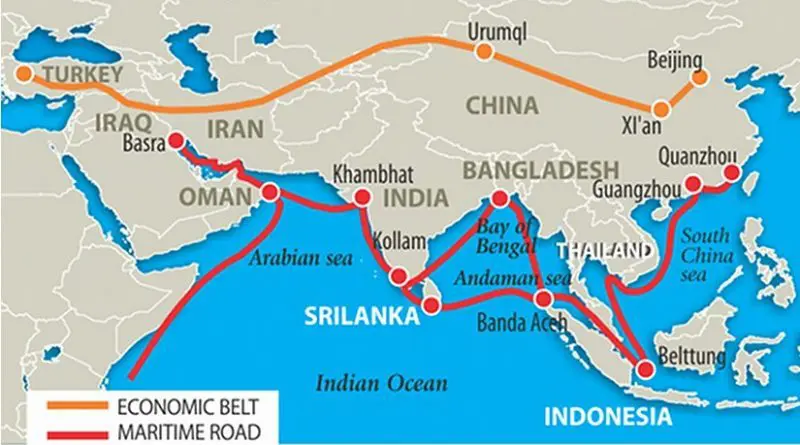China’s New Silk Road Risks Unravelling In Hungary
By EurActiv
By Mariangela Pira
(EurActiv) — China’s planned railway link between Greece and Central Europe has hit difficulties after the project was accused of flouting EU rules on public procurement in Hungary. EURACTIV’s partner Italia Oggi reports.
China did not secure a controlling stake in the Greek port of Piraeus in order to carry on with business as usual. Beijing wants to connect the hub better with Central Europe as part of its ambitious One Belt One Road initiative (OBOR).
That is why China has begun building a railway that will link the port with Budapest via Serbia. But the start of work in Hungary has been hit by problems and construction of the Belgrade-Budapest route has been halted.
EU member Hungary has allowed China to embark on the project, despite concerns from Brussels and the continent’s business sector.
NGO OBORwatch, a group committed to keeping tabs on the Chinese project, claims in its latest study that Hungary did not publish a call for public tender and instead relied on bilateral agreements with China.
The EU is now investigating the situation because public tenders are a prerequisite for large infrastructure projects like the Chinese railway.
“It’s as if the project were assigned to the Chinese based solely on an agreement with the Hungarians, completely bypassing European rules related to public bids,” explained State Representative of the European Chamber of Commerce in China Sara Marchetta.
The railway in question begins in Serbia but the project has broken no rules there, as Belgrade is not obligated to launch a tender process given that it is not yet a member of the EU.
It is also problematic that China is not a signatory to the World Trade Organisation’s Agreement on Government Procurement (GPA), which strives to ensure open, fair and transparent competition conditions. The EU and all its member states are signatories.
The lack of reciprocity in procurement contracts between Brussels and Beijing has caused friction, as European companies face huge difficulties accessing Chinese government contracts.
China’s new Silk Road project and its future success could now hinge on how the EU deals with this issue, as Brussels could set a legal precedent that would be hard to divert from.

